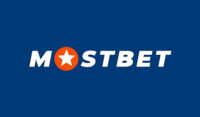The burgeoning field of iGaming has witnessed a significant rise in offshore and remote operators seeking permits to operate in Nigeria. This rise highlights the country’s evolving regulatory framework and emerging opportunities for iGaming enterprises. As a key player in this sector, understanding the legal and tax implications is vital for smooth operations and compliance.
Role of The National Lottery Regulatory Commission (NLRC)
The National Lottery Regulatory Commission (NLRC) plays a pivotal role in overseeing the licensing and regulation of lottery and gaming activities within Nigeria. Established under the National Lottery Act of 2005, the NLRC is mandated to regulate lottery activities, protect player interests, ensure the integrity of lottery operations, and generate revenue for the government.
The commission’s responsibilities extend to both land-based and online lottery operators, which now includes remote operators. To obtain an offshore or remote operators permit, applicants must meet stringent requirements set forth by the NLRC, ensuring compliance with Nigerian laws and safeguarding public interest.
National Lottery Amendment Act 2017
The regulatory framework for lotteries in Nigeria was significantly enhanced by the National Lottery Amendment Act of 2017. This amendment broadened the scope of the original 2005 Act to include modern forms of gaming such as online lotteries, sports betting, and other iGaming activities. Among its notable provisions, the Amendment Act introduced explicit regulations for offshore and remote operators, ensuring they adhere to the same standards as domestic operators.
The amendment was a watershed moment for the industry, providing a clear legal pathway for international operators to enter the Nigerian market. By doing so, the law fostered a more competitive and dynamic environment, attracting foreign investment and enhancing the industry’s growth potential.
Taxes for Various Types of iGaming Businesses
Taxation is a critical component of the regulatory framework for iGaming businesses in Nigeria. Below is a breakdown of the various taxes applicable to different types of iGaming operators.
Lottery Companies Income Tax
Lottery companies in Nigeria are subject to corporate income tax (CIT), which is calculated based on their net profit. This tax is a standard obligation for all business entities in the country, ensuring that lottery operators contribute to the national revenue.
Player Deposit Tax
A unique aspect of the tax regime for iGaming businesses in Nigeria is the Player Deposit Tax. This tax is levied on the deposits made by players into their gaming accounts. The rationale behind this tax is to capture a portion of the gaming revenue at the point of entry, making it easier to administer and collect.
Nigerian Withholding Tax
Nigerian Withholding Tax applies to various payments made by gaming operators, such as commissions to agents or service fees to foreign providers. This tax serves as a form of advance payment on the income tax liability of the payee and is deducted at source by the payer.
CIT (Corporate Income Tax)
Corporate Income Tax (CIT) is a general tax on the income of companies in Nigeria, including iGaming businesses. The standard rate is currently set at 30% of the net profit. Additionally, companies may be subject to other levies and charges depending on their specific activities and location.
VAT (Value Added Tax)
Value Added Tax (VAT) is another crucial tax for iGaming operators in Nigeria. This consumption tax is levied on the value added at each stage of the supply chain. For iGaming businesses, VAT is typically charged on the services provided to players, including the stakes in lotteries and bets in other gaming activities. The standard VAT rate in Nigeria is 7.5%.
Nigeria presents a fertile ground for offshore and remote iGaming operators seeking to expand into new markets. However, navigating the regulatory and tax requirements requires meticulous attention to detail and a comprehensive understanding of the laws enforced by the NLRC and other regulatory bodies. By remaining compliant with these regulations, iGaming businesses can thrive and capitalize on the significant opportunities within Nigeria’s dynamic market.





